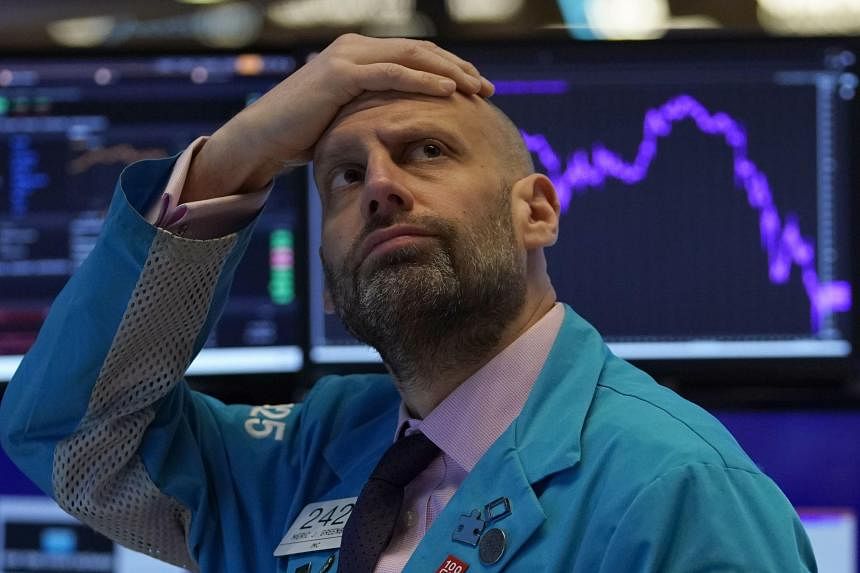What should seniors consider when they invest

Over short periods, financial markets can be treacherous. So I usually recommend spreading your risks with low-cost investments in the entire stock and bond markets, and hanging in for decades. But an e-mail from a reader brought me up short.
“This 92-year-old just read your column,” she wrote, adding, “Wish me luck.” I did wish her luck in an e-mail, and I apologised for failing to be sensitive to her needs. Later, we spoke at length on the phone. Her financial accounts had been hacked, she said, so I agreed to conceal her identity to shield her from further problems. Her first name is Jane.
She relies on her investments for the income she lives on. “Investing for many decades would be nice,” she said. But even if she remains strong and healthy and has the best intentions, she is unlikely to be able to do it. She would like to pass some of her money on to family members, she said, but needs first to make sure that she has enough for herself.
I thanked Jane for helping me think about issues that are critical when you do not have the luxury of a long horizon. Although rising interest rates have wreaked havoc in stock and bond markets, I pointed out to Jane that they have created opportunities for short-term investors. There are now attractive yields in safe places like money market funds or certificates of deposit.
Safe short-term holdings
Jane has been investing in stocks and bonds because they have produced better returns over long periods than holdings of short-term instruments like money market funds, bank savings accounts and certificates of deposit. But not in 2022.
As the United States Federal Reserve and other central banks raised short-term interest rates in a bid to tame inflation, bond prices fell (their prices move in the opposite direction as yields, or interest rates), and the stock market plummeted. It was the worst year for bonds on record, and the worst for the benchmark S&P 500 stock index since 2008.
But some safe short-term investments fared much better. As I pointed out to Jane, if you need to be sure that your money is available for spending over the next year or two, this happens to be an excellent time to get a fairly high rate of return on investments with little or no risk, like money market funds, high-yield savings accounts and credit default swaps (CDs).
Money market fund yields now average more than 4 per cent for large funds sampled by Mr Peter G. Crane, the president of Crane Data in Westborough, Massachusetts. Major companies like Vanguard, Fidelity, Schwab and T. Rowe Price offer such funds. Their yields have rapidly soared from near zero over the last year, following the lead of the Fed, and they are highly likely to rise closer to 5 per cent if the Fed continues to raise interest rates, as it has indicated it intends to do.
Some high-yield savings accounts – which carry government guarantees, unlike the higher-yielding money market funds – are now offering interest rates above 3 per cent. Bank CDs of a duration of one year or more are beginning to provide yields above 4 per cent, Treasury notes with a maturity of two years are offering yields over 4 per cent and Treasury inflation, or I bonds, are paying 6.89 per cent.
In short, at the beginning of 2022, short-term holdings offered almost nothing appealing. Now, there is a broad range of options with relatively handsome yields, although none look particularly good when inflation is still running at a 6.5 per cent annual rate, as the latest numbers show.
Long-term market returns
When you can afford to invest for decades to come, the arguments for both stocks and bonds are compelling. For the 25 years through December, the S&P 500 returned 7.64 per cent annualised, including dividends, according to data compiled by Mr Howard Silverblatt, senior index analyst for S&P Dow Jones Indices.
That means that in six or seven years, your investment would have doubled, over and over again, outstripping the rate of inflation in most years. Bonds have not produced returns of that calibre over the long haul, but they have been quite good, nonetheless – with returns of more than 6 per cent annualised for diversified bond portfolios, based on Vanguard data.
But these gaudy long-term returns contain within them some horrible years, and 2022 was one of them. If you needed to convert stocks and bonds to cash, you probably incurred big losses.
The horror of 2022
The last three months of 2022 were excellent for both stocks and bonds. The average stock mutual fund in the US rose 7.8 per cent in the fourth quarter, while the average taxable bond fund gained 2.4 per cent. Yet they did not come close to making up for the devastation of the preceding nine months.
For the year as a whole, after including dividends, the S&P 500 lost 18 per cent, the worst return since 2008. The average stock mutual fund fell 18 per cent as well.
For bonds, it was the worst year in all of modern history, said Dr Edward McQuarrie, an emeritus professor at the Leavey School of Business at Santa Clara University. The 12-month stretch through October was the worst for any 12 months since 1794. The calendar 2022 year returns were terrible, too.
The average taxable bond mutual fund lost 9.9 per cent for the year. And long-term Treasury bonds, as measured by two leading exchange-traded funds (ETFs), the Vanguard Long-Term Treasury ETF and the iShares 20+ Year Treasury Bond ETF, lost nearly 30 per cent of their value.
Previously high-flying stocks such as Tesla, PayPal and Meta (Facebook) lost more than 60 per cent of their value in 2022. Shares of energy companies like Occidental Petroleum, Hess and Exxon Mobil gained more than 60 per cent. Energy mutual funds and ETFs soared, and if you owned them and nothing else, you would have done fine in 2022. But making all the right choices over short periods like that is nearly impossible.
Will energy stocks rise again in 2023? I have no idea.
A conservative approach
Owning some stock may make sense at any stage of life, but I would suggest doing so through broad, diversified, low-cost index funds that mirror the entire global market, and would not attempt to pick this season’s winners. The costs of a mistake are too great if you do not have decades to recoup.
If you do have a horizon of decades, it seems reasonable to assume that the overall stock market will gain in value as the global economy grows. In the past 100 years, the stock market has beaten other asset classes, and I expect that it will do so again.
That is not a sure thing, however, and even if stocks outperform over the long term, it will be difficult for many people to stick with their investments during the bad stretches that will inevitably come.
For those reasons, I would hold some bonds, and keep some money in investments that can be converted immediately into cash, at any time. But if your horizon is short, and it is likely you will need to spend these investments soon, I would be extremely conservative.
In that case, reduce your stock holdings, be careful with long-term bonds and keep most of your money in the excellent short-term investment vehicles that are now available. NYTIMES
Follow ST on LinkedIn and stay updated on the latest career news, insights and more.




No comments:
Post a Comment